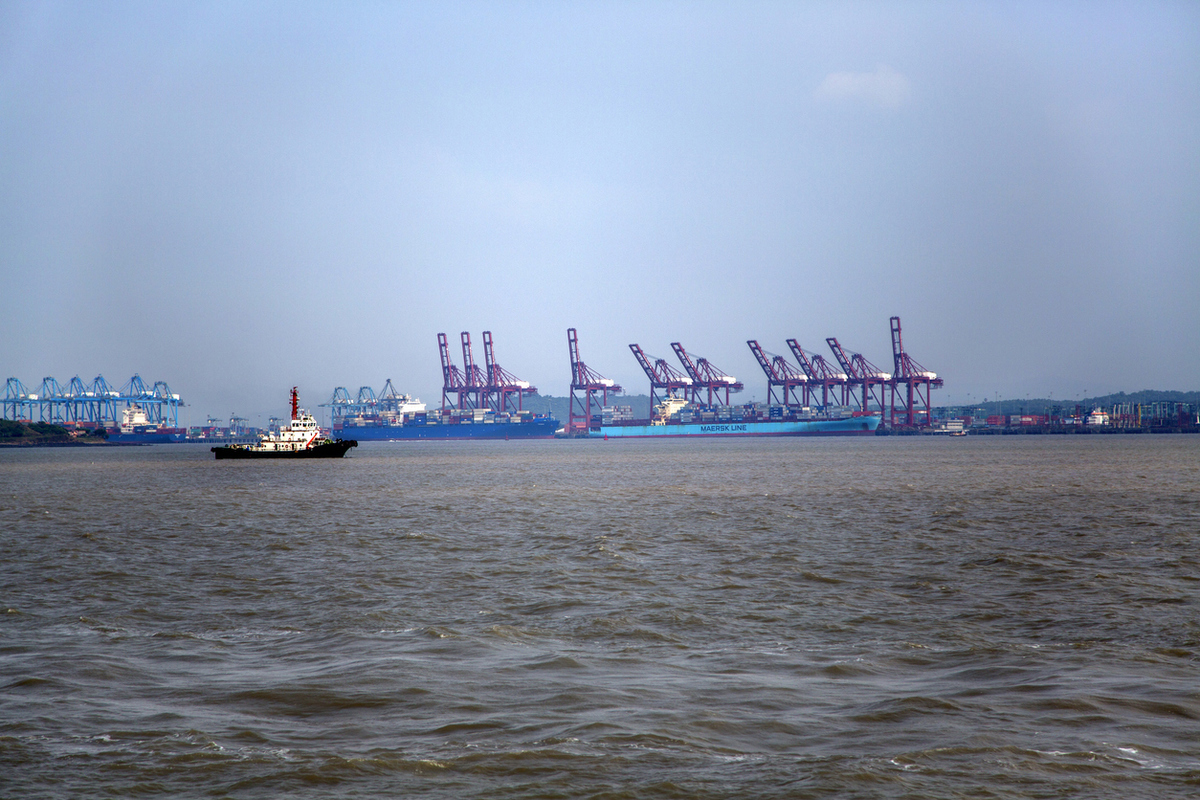India’s windfall tax on oil could dent gasoil bunker demand – sources
The new expected 18% bump in India's tax rate on gasoil at the refinery level could drive LSMGO prices higher possibly weaken its demand, sources say.
 PHOTO: Cargo ship at Jawaharlal Nehru Port in Mumbai. This port, also known as Nhava Sheva, is the largest container port in India. Getty Images
PHOTO: Cargo ship at Jawaharlal Nehru Port in Mumbai. This port, also known as Nhava Sheva, is the largest container port in India. Getty Images
Earlier this month, the Government of India introduced windfall taxes on local crude oil producers and refined product exports that came into effect on 1 July, a move intended to increase the government's tax revenues and discourage export of oil products.
Indian refiners have profited vastly from buying discounted Russian crude oil while other global buyers have shied away, allowing Indian refiners to produce gasoil, fuel oil, and other products at lower costs.
Some of these refined products have later been labelled as Indian products and sold on to other countries. Vortexa data suggests that Indian gasoil and diesel exports to Singapore rose to new highs in May.
Demand for LSMGO is likely to be impacted across key Indian bunker ports, particularly Mumbai, sources say. LSMGO and VLSFO availability has been relatively stable in Mumbai in recent months compared to other regional ports such as Singapore and Fujairah, where lead times are longer and more unpredictable.
Last month, Mumbai’s LSMGO and VLSFO prices dropped to rare discounts to Singapore.
Other Indian ports that only supply fuel oil bunker grades, such as Mundra on the northwest coast, are not expected to be directly impacted as the tax only targets gasoil among bunker grades.
The Government of India announced it will review the windfall tax every 15 days, but it seems unlikely the country will lift the taxes anytime soon.
India’s Revenue Secretary Tarun Bajaj said the government would consider lifting the windfall tax only if crude prices fall by at least $40/bbl from current levels.





